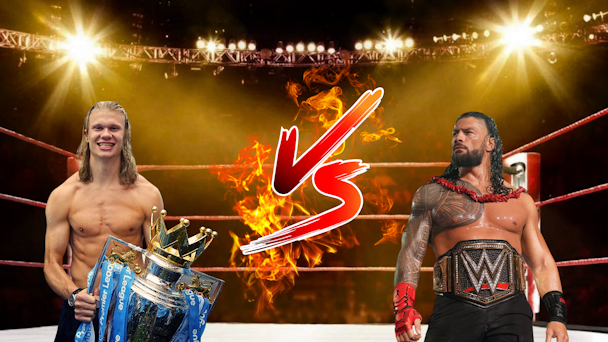Gen-Z fans want their football more like WWE than MOTD
Footballco’s Andrew Baker explores his latest research into how Gen-Z consumes the sport. The changes needed to make it more appealing may be more radical than we previously assumed.

2024 is a massive year for international football. As I write this, the Asian Cup and Africa Cup of Nations played out in Qatar and the Ivory Coast, respectively. In June, Euro 2024 kicks off in Germany, and a week later, the US will host the Copa America. Then there’s the Paris Olympics, featuring men’s and women’s tournaments. But before those events sneak up on us, I have to mention the elephant in the room.
To prepare for this year, our Footballco Insights team has been researching international fanbases to understand better how fans, especially young ones, want to consume football.
The results show incredible growth of interest in the Middle East and the US, with both regions seeing a surge in young player-over-club fans - fanbases that look very different from regions with more traditional football heritage. But globally, whether in an emerging or established football market, the content consumption of fans, especially Gen-Z, continues to change. So much so that in Q4 last year, our Euros 2024 study revealed that 38% of fans said that not being able to watch Euro 2024 matches live wouldn’t affect their enjoyment of the tournament. This lept to 47% of Gen-Z England fans.
It wasn’t that half of young England fans aren’t interested in the Euros. If anything, we’ve seen a growth in interest in football over recent years, it’s just how they want to consume it is broadening. Those surveyed wanted to play football video games, watch highlights online, read stories and consume social media content associated with their players and teams. The live match was still interesting, but it faced much competition, especially from non-match social content.
There’s always a debate on why some fans feel less engaged with the 90-minute match. Perhaps they’ve been priced out; maybe competition from other entertainment is too great. However, nobody can say that it’s because young fans lack the attention span - it’s more that the attention is going elsewhere.
When we followed up on our Euros research with qualitative interviews, one phrase that lept out was a fan saying they wanted football content to “be more WWE than Match of the Day.”
This phrase mirrored much of what we saw on the broader research. Fans want entertainment; they also want inspiration and stories. We see this in the popularity of football series like Welcome to Wrexham and All or Nothing or the slew of Drive to Survive-style shows that Netflix has been behind. These are shows where the entertainment comes away from the pitch or the race track. The stories, not the tactical analysis, keep fans coming back. Of course, the battle to win the match or the championship is the underlying narrative, but there’s more to it than one thread.
This is what WWE excels in. It’s a popular misconception that WWE’s flagship shows, RAW and Smackdown, are wrestling shows. They’re not. They’re shows about making a wrestling show. RAW lasts three hours, and while it can fluctuate, often less than half of the show’s content involves wrestling. Instead, it’s backstage, it’s promos/interviews, it’s using narrative devices to make fans care about what goes on in the ring. It’s entertainment, which is echoed through their social media work and the way they empower their talent on social media. It might label itself as ‘sports entertainment,’ but it’s the entertainment doing the work.
I’m not suggesting young football fans want Match of the Day to become RAW. They don’t expect Pep and Klopp to square up to each other ahead of the big weekend fixture. But they do care more and more about the story and content outside of the pitch (or the ring) and rights holders and brands need to recognize this.
We see this when players can be themselves, entertaining, emotional and honest. The marketability of Erling Haaland isn’t high just because he’s a unique, world-class footballer; he’s also a really entertaining personality. Football fandom is moving in a direction where players like Haaland can thrive. For all their talent on the pitch, Messi and Ronaldo aren’t hugely entertaining off it, unlike the new crop of elite players we’re seeing young fans flock to.
While this might not be good news for rightsholders selling broadcast deals, it is for brands. Brands can and already do create entertaining content that compliments the live experience but can stand alone without it. What we’re seeing now is a greater appetite than ever for that content, and I expect this to continue throughout a great year for football and beyond.

